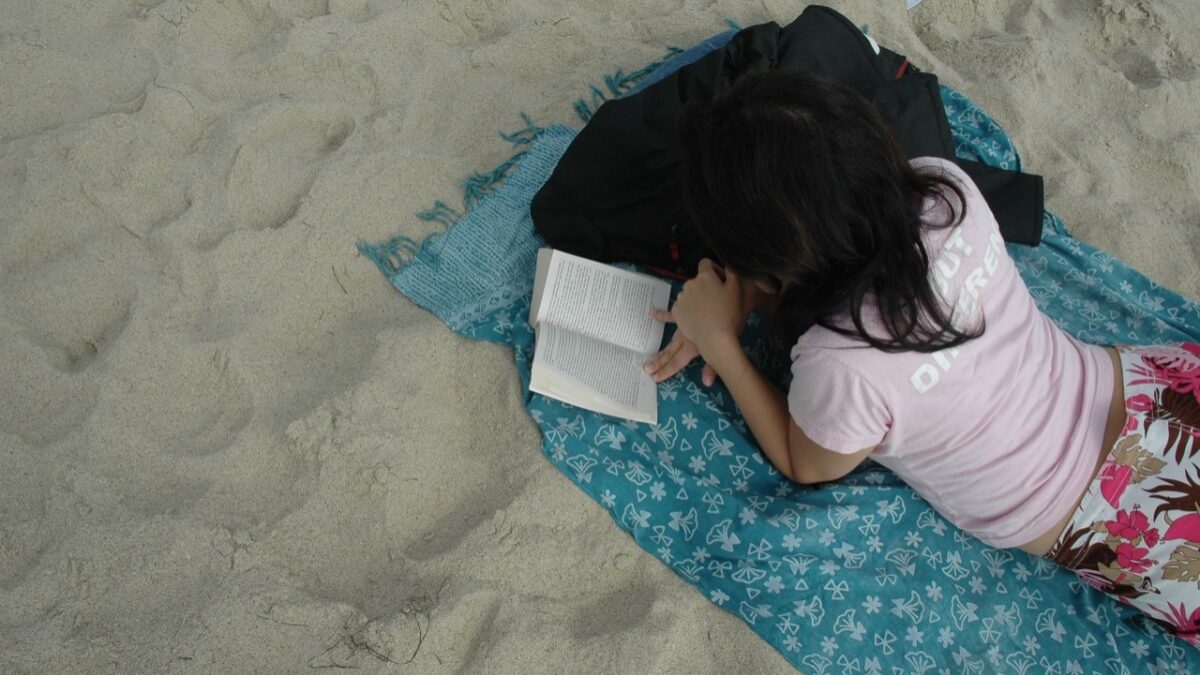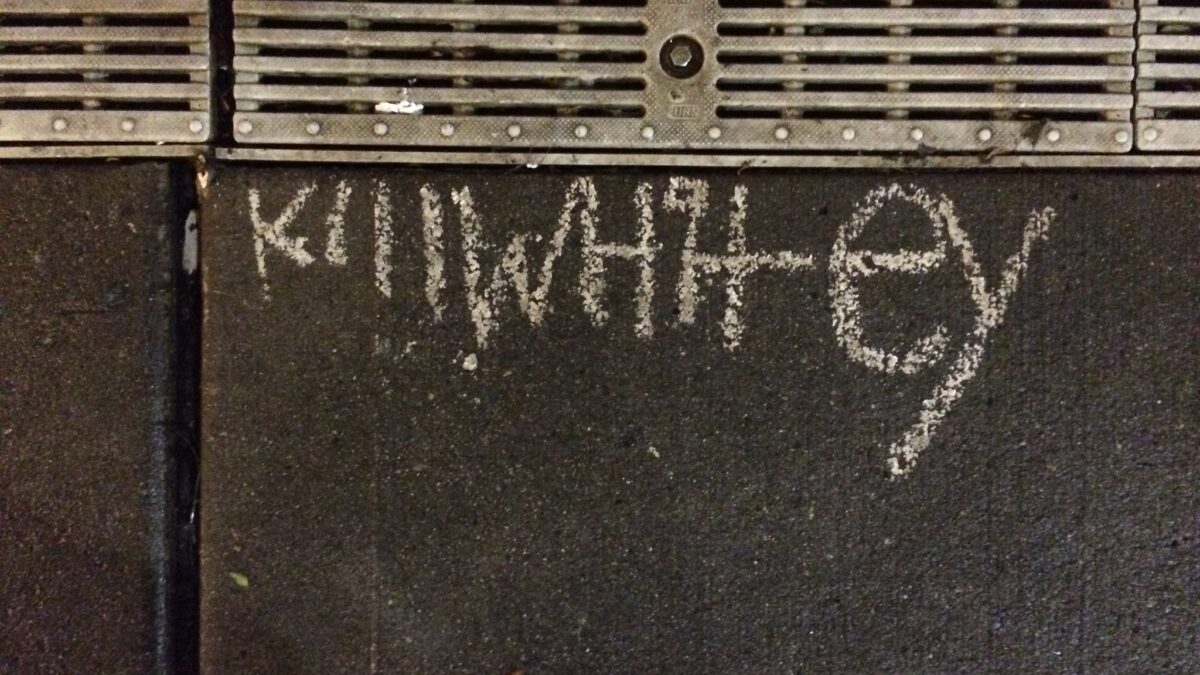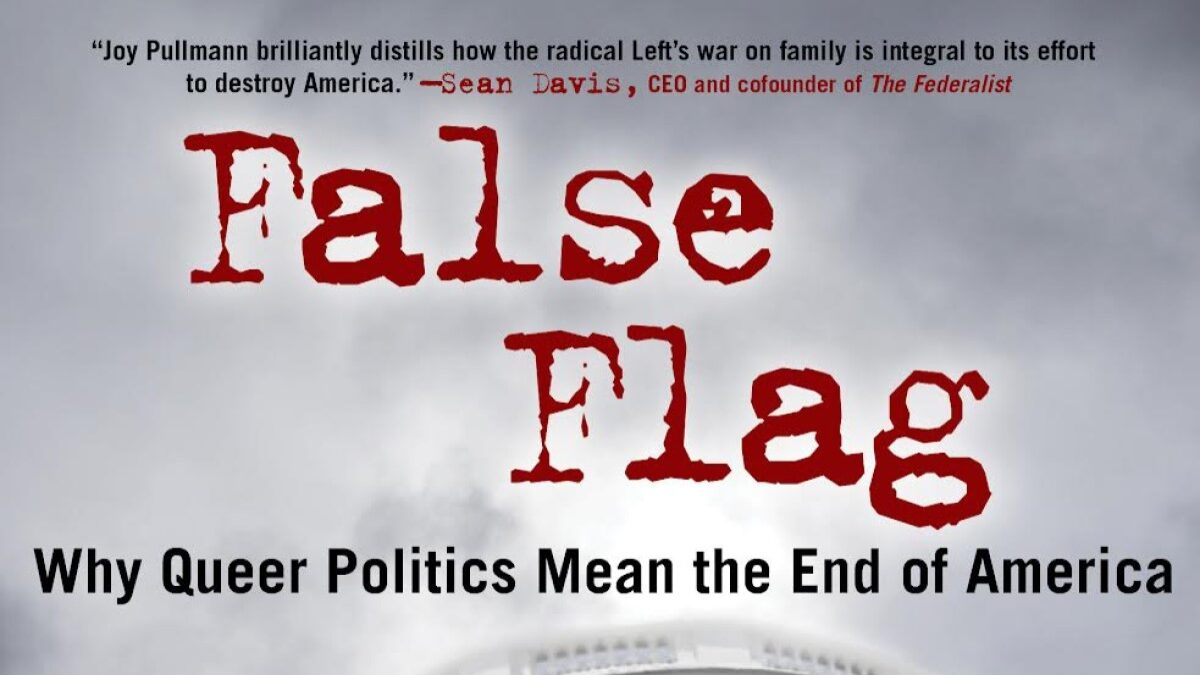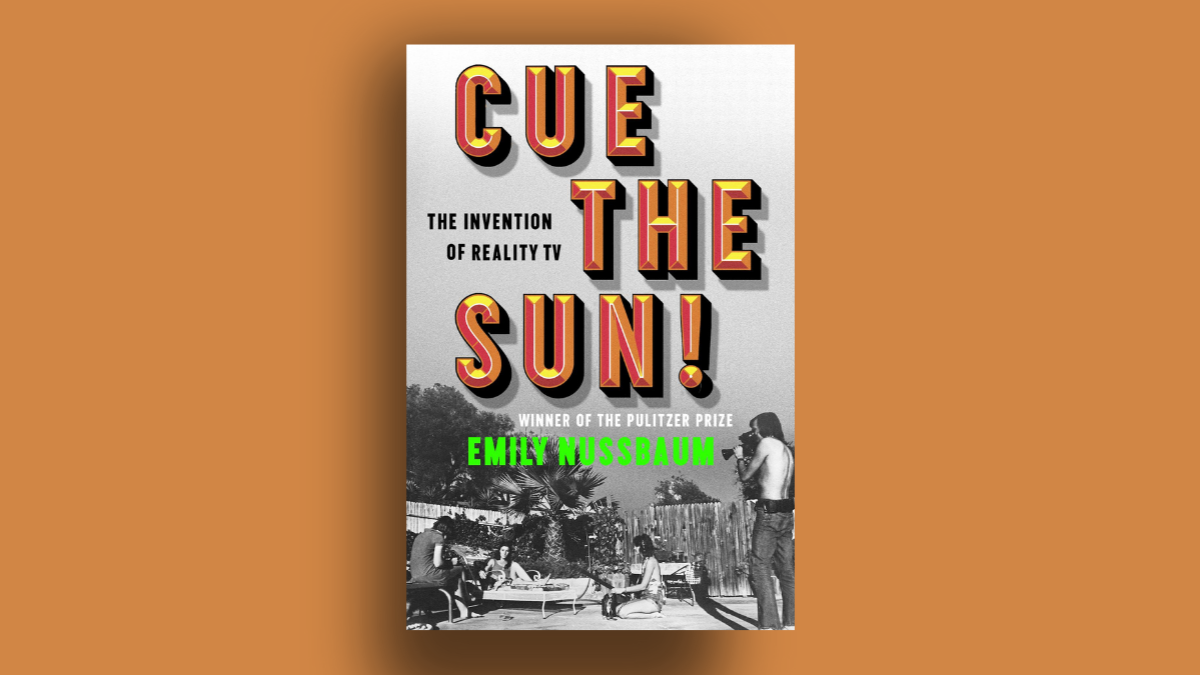I’ll start with a little negging: This list is not of light reads. Traditionally, of course, people take those to the beach and poolside. One might think a magazine would be lighter reading for such occasions, but that’s usually when I try to catch up on the Claremont Review, also not a light read. For me, it’s light in its length, in providing articles instead of whole books.
I always have been a book monster, voracious for words, words, words, words. There may be fewer of us now, but I think we’re the true elite. Our ruling class that knows nothing is not truly elite; what’s elite is to have the attention span to sustain long and complicated turns of argument and plot, and to hold an idea in your mind without immediately accepting or rejecting it. That takes practice and effort.
I’ve also always felt that best friends give excellent book recommendations. So, in the spirit of bookish friendship, I pass on to you this list of books I’ve been reading lately and am toting to family travels this summer. We start with nonfiction and end with fiction.
The Smear, Sharyl Attkisson
I’m on a Sharyl Attkisson back-catalog kick, jumpstarted by finding this 2018 book on a shelf at a conservative event a month ago. As many readers will know, her books are excellent. They’re also highly useful media criticism and journalism history, especially useful to me professionally.
I’ve been mostly listening to The Smear via audiobook, although I also have the hard copy so I can switch between formats. I find audiobooks more fact-dense than podcasts. It’s therefore harder to half-listen to them while you do something else. They help fill in the long hours spent on the usual summer road trips and outside watering the garden in this year’s unseasonable early heat and dryness.
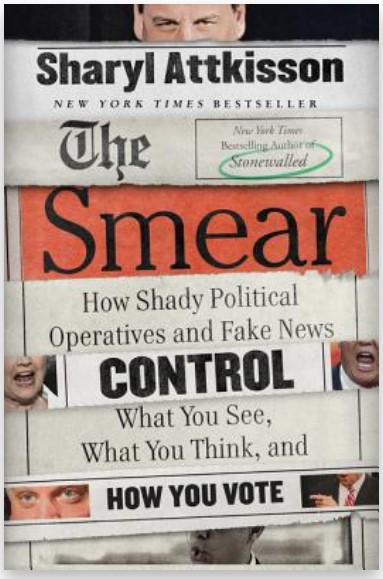
The Smear focuses on the communist tactic of going after a figure’s character rather than his argument. Its review of Clinton camp skulduggery has been especially helpful to me as a millennial not old enough to have been politically aware in the ’90s. It’s been super interesting to see that the exact same Clinton allies who helped smear “Bill’s bimbos” also helped launch and launder the Spygate attacks on Donald Trump.
I love Attkisson’s reporterly neutrality between right and left. She reads much more evenhanded than most political writers, which is refreshing both as a change and as a model for expanding my own writing possibilities. I also love her strong moral compass, which is evident in her not putting up with smear operations, no matter which political team is fielding them. I also picked up her 2020 book Slanted and can’t wait to get into it.
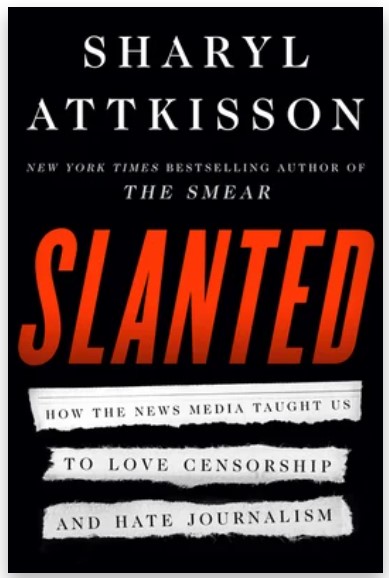
Big Intel, J. Michael Waller
Big Intel explains how U.S. intel agencies — particularly the CIA and FBI — turned into Biden’s brownshirts. This fascinating book came out earlier this year. J. Michael Waller — an occasional Federalist writer — goes over some of the history also explained by Mike Benz in his big interview with Tucker Carlson this year, about how the regime-change operations U.S. intelligence agencies began fomenting abroad after World War II have now come domestic.
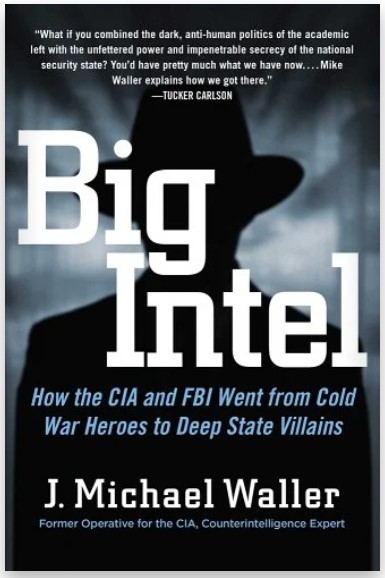
Waller adds deep knowledge of agency history, especially of the FBI and CIA being from their earliest days infiltrated by Communist Soviet agents. His history adds to my mental archive on the Communist infiltration of high-ranking American government positions from the New Deal to the Cold War to today. It turns out that actual Communist agents have been at the center of multiple significant and successful efforts at subverting the U.S. Constitution and its people, all the way back to FDR. If you want to read about that, dig out your M. Stanton Evans and Diana West.
In a way, it’s no surprise that the State Department and CIA were early infiltrated by Communists. Waller explains that it took longer for that transformation in the FBI and shows how the transformation is evidenced by the agencies’ public allegiance to what I describe as the regime-change ideology of diversity, equity, and inclusion. It’s an important backgrounder on the deep-state struggle sessions affecting our politics today.
Informing Statecraft, Angelo Codevilla
Waller’s book recommended several others I then picked up, starting with Angelo Codevilla’s Informing Statecraft. Codevilla, a Claremont Institute fellow and Boston University professor, among other things, was one of the Federalist and many other right-wing outlets’ contributors I always read with great eagerness until his untimely and surprising death from a car accident in 2021.
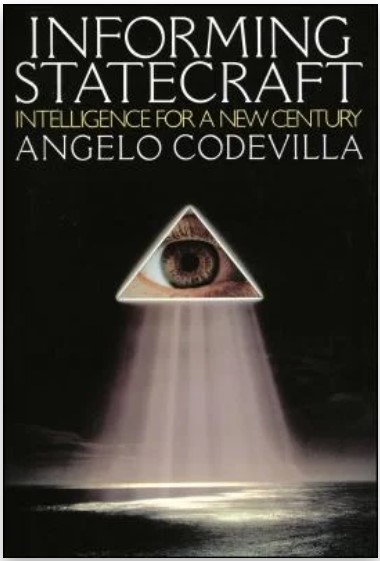
Many readers will know Codevilla from his 2010 book, The Ruling Class, expanded from an essay of the same name in The American Spectator that year. In it, Codevilla explicated the chasm between ruling and the ruled that has given us Trump and the public awareness of the cold civil war in which we’ve been engaged in the century since self-styled progressives broke the U.S. Constitution.
A longtime skilled foreign policy hand with much practical wisdom to offer, Codevilla’s archive is well worth rereading. Waller gave me a place to start by recommending Informing Statecraft. It’s wonderful that Codevilla left enough behind that we can still learn from him while waiting to meet him in eternity.
Controligarchs, Seamus Bruner
This is the latest in a series of books from the investigative researchers at the Government Accountability Institute. Controligarchs came out in November 2023. I found it a gripping and readable overview of the many current ways the ruling class Codevilla defined is attempting to control every aspect of American — and Western and even global — life. It honestly kept me up at night so much that I had to stop reading it before bedtime, my usual reading opportunity.
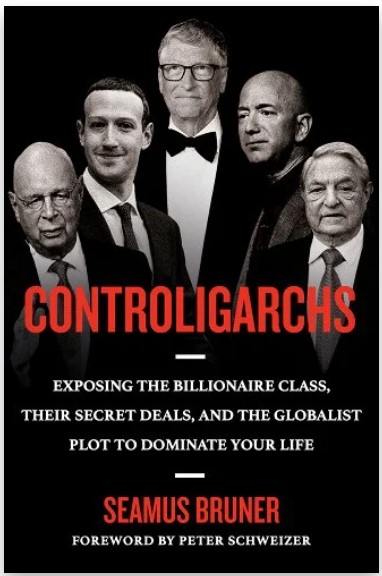
Bruner gives eye-opening insight into the way global multigazillionaires are attempting to revert the rest of us to the historic norm of serfdom. His deeply researched chapters cover the massive “health” industry, big ag and the centralization of global food supplies, pharmaceutical and nutritional experiments on unsuspecting populations, “biometric surveillance,” the Great Reset, technocratic environmentalist doomsday cults, BlackRock and other mega-financier attempts at controlling entire economies, and more.
It’s part thriller, part investigative exposé, and it will keep you on the edge of your chair while also informing you of massive global schemes designed to erase self-government. Exposure is the first way to fight back.
Dominion, Tom Holland
It was thanks to Federalist colleague John Davidson’s new book, Pagan America, and our staff discussions about it that I picked up this history of Christianity’s creation of the West. Dominion tells a story educated Christians already know, but it’s one I want to see more deeply documented and in greater detail.
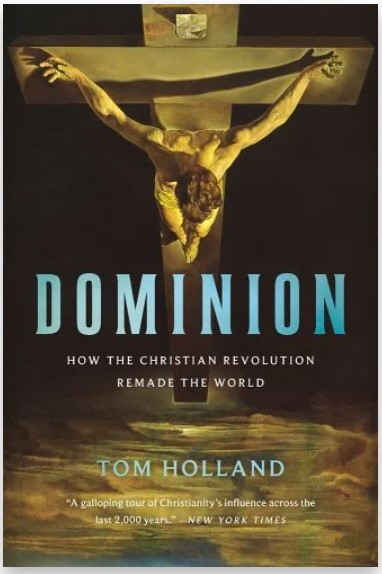
I’m especially interested in this book’s development of a theme I picked up on in my latest book: that God-haters even express their anti-Christian religion in Christian terms. It’s like no other language is available than the Christian language for understanding the world, even in the mouths of people attempting to blaspheme. Is that a cosmic joke? Yet another proof that Christianity is true? Perhaps both, and more.
The same inability to express themselves without Christian terms and understandings is true of ideologies that compete with and reject Christianity, including atheism and identity politics. As a Christian, this makes perfect sense to me, but I’d still like to learn more and see more applications. I’ve just started Dominion, but the writing is also gripping, making this thick book yet another page-turner.
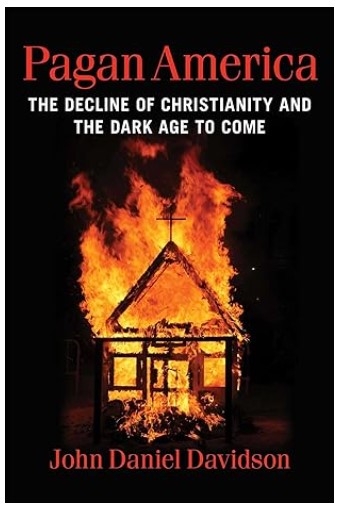
Island of the World, Michael O’Brien
This 800-page novel is as hard to describe as it is to read and put down. The back cover aptly says that this story of a Yugoslavian born 90 years ago as World War II and the Cold War are set to brutalize his country is about “the crucifixion of a soul” and its “resurrection.” Halfway through, the book has put me in heaven and hell already twice.
(Plot spoilers!) The main character, Josip Lasta, grows up in an idyllic mountain village destroyed before his eyes before he hits puberty. After university and about a year into his marriage, Josip is discovered to be writing poems without Communist government approval. After a show trial, he’s beaten nearly to death and sent to a labor camp where inmates are forced to pick through their own droppings for undigested food to eat again. It’s a true account of Communism’s hellish degradations and the transcendent beauty of the human soul. (End spoilers)
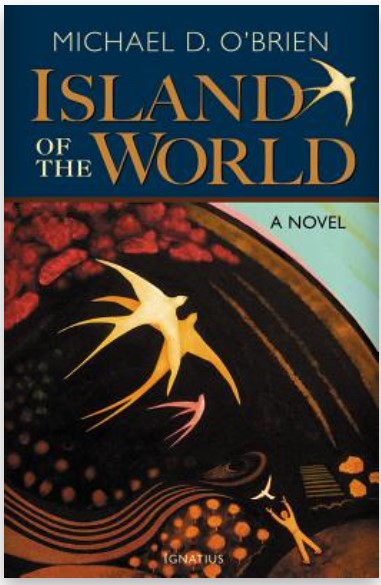
It was chilling how many — although thankfully currently less brutal — parallels I saw between Josip’s Communist days and our own. Josip published what we now call samizdat, and so, in our Internet Iron Curtain days, do we at The Federalist. Even when the circulation was far reduced by its publication under totalitarian conditions, his work still irritated the regime and provoked a response, proving its value. That was encouraging even though it led to unfathomable suffering for Josip.
It’s hard to imagine how an author could suffer such a story into existence. The Island of the World is both hauntingly beautiful and deeply terrifying. It challenges the reader and deepens his understanding of life, history, humanity, suffering, love, and God. Truly a better classic than many listed on “classic books lists” from worthless universities, professors, and publications. I’d recommend this to every serious reader.
The Saints of Whistle Grove, Katie Schuermann
Katie Schuermann recommended The Island of the World to me, and reading it reminds me of her latest book out in December, The Saints of Whistle Grove. That’s because, while Whistle Grove is thankfully not as hard to read as an account of a Communist concentration camp inmate, it similarly blends the transcendent and terrorizing in ways that leave me sucking in my breath.
I keep rereading this book, giving away my copy to friends, and then buying another. It’s easier to do because the book is so inexpensive at just $15.
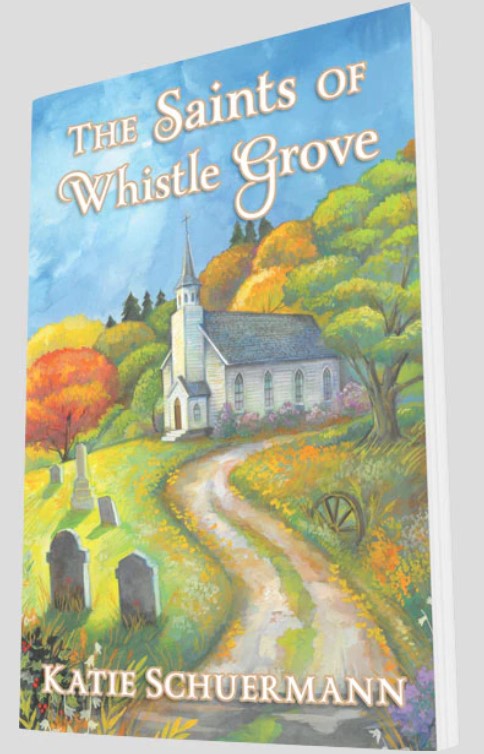
Whistle Grove is a tale of how everyday American lives can incorporate both incredible beauty and incredible pain. Schuermann tells a series of stories from different eras set in one rural American town. She moves readers back and forth in time, making this book also somewhat of a mystery as readers connect the names and their stories through time. Just about all of us, I think, have experienced grief and loss like we watch Whistle Grove’s characters do. Katie doesn’t spare the sword, but she also doesn’t spare the transcendent comforts that encircle and sustain through times of the inevitable suffering we all face at some point in our lives.
Whistle Grove is now available in an audiobook, for those of you who listen as you wash dishes, fold laundry, mow lawns, and weed gardens. Have a corner of your T-shirt or a tissue handy, though, for when Whistle Grove’s people are dragged into personal Gethsemanes that all of us who have encountered our own will recognize.
Do sign up for Katie’s free email list, because she sends truly useful, conversational discussions of books that teach how to read well.
In the Days of Alfred the Great, Eva March Tappan
Now for something a little different yet still in keeping with our apparent theme of triumph through suffering. I recently read this with my oldest son for a mother-son book club. In the Days of Alfred the Great is a classic young person’s biography recovered by the wonderful Australian small business Living Book Press.
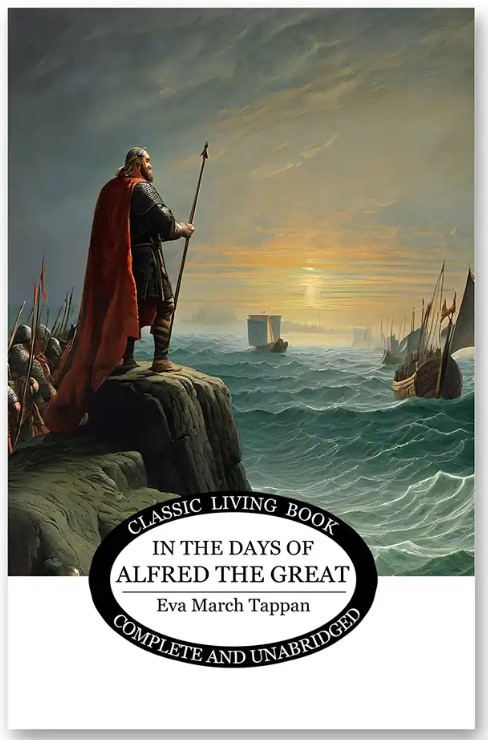
My 13-year-old son and I enjoyed reading and discussing this dramatic tale of King Alfred the Great of England before it was England. He, too, faced seemingly insurmountable difficulties yet refused to give up. His choice to take on his people’s suffering — primarily through constant Viking raids that involved church desecration, village mass murder, and unspeakable violence — miraculously united and saved his tribal people from medieval terrorism.
LBP has a 20 percent sale now through July 9, so head on over and scoop up some books for the whole family. I haven’t been disappointed with anything I’ve bought from them. This sale I bought The Odyssey for Boys and Girls by Alfred Church (his paraphrases of ancient epics are excellent for young readers); The Story of the Great Republic and The Story of the Thirteen Colonies by Helene Guerber (another classic historian for younger readers); and The Men Who Found America by Frederick Winthrop Hutchinson.
When I want a truly lighter read, I pick up children’s classics — another great beachside choice. Here’s another Schuermann recommended to me: Jane of Lantern Hill, by Anne of Green Gables author Lucy Maud Montgomery. It’s a book about divorce’s effect on children, with a happy ending.
